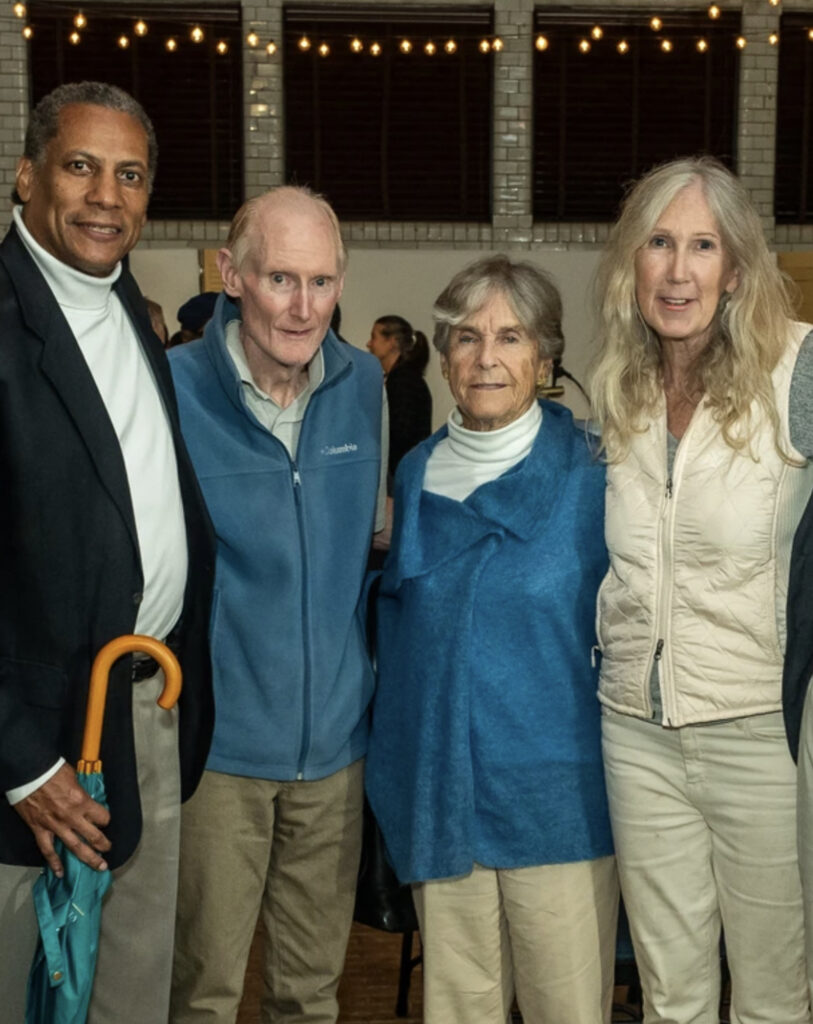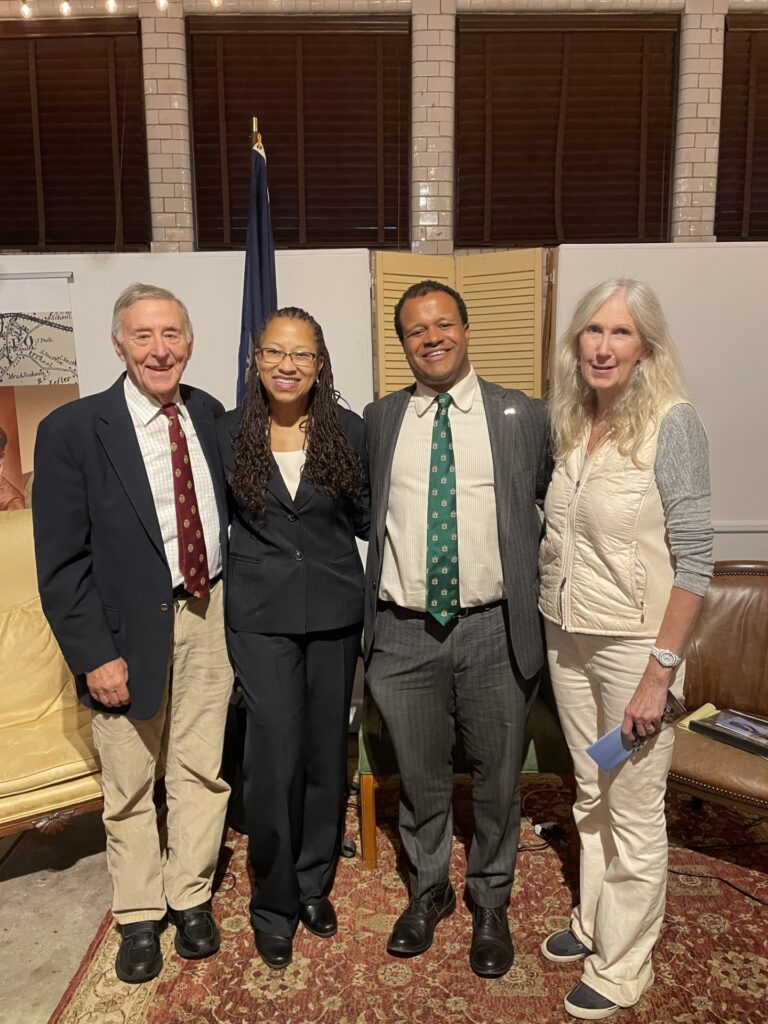When eight enslaved women and children arrived in New York Harbor in 1852, the court ruled that they were free, even though they were brought to New York by their enslavers. The lawyer that represented them, Rye resident John Jay II, was known for his abolitionist positions, but the case, known as the Lemmon Slave case, became a battle cry for secession when appeals defied the U.S. Supreme Court’s ruling in the famed Dred Scott v. Sandford case.


Retired Court of Appeals Judge Albert M. Rosenblatt, author of “The Eight: The Lemmon Slave Case and the Fight for Freedom,” visited the Jay Heritage Center on October 29 to talk about his book, the dramatic events and characters of it, and its impact on New York and the nation. The compelling talk, moderated by Judge Philippe Solages of the Nassau County Supreme Court, also focused on the Underground Railroad and the abolition movement.
Luanne Wills-Merrell, a descendant of two of the formerly enslaved people, was one of the many listeners in the audience.
The program was co-sponsored by the Westchester Bar Association and the Westchester Black Bar Association. After its conclusion, guests had the opportunity to interact with the judges and members of the Historical Society of the New York Courts.















